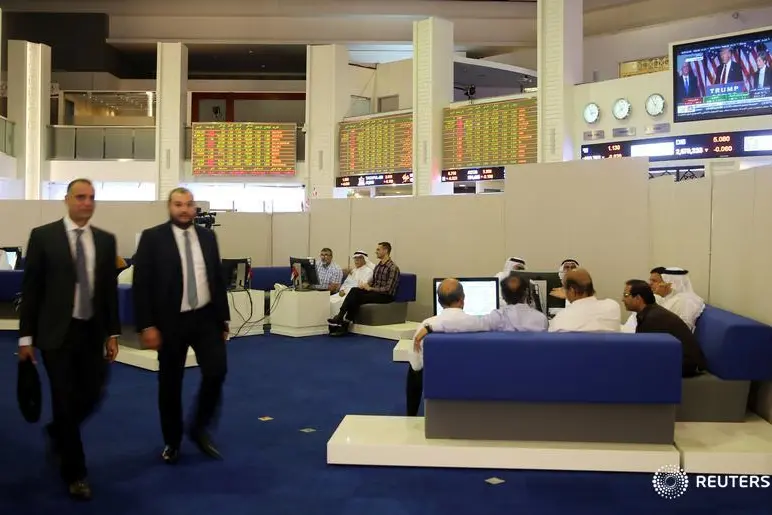PHOTO
(Quotes in paragraphs 13 and 14 added; Spelling of analyst's name in paragraphs 8, 10 and 12 corrected)
The Dubai Financial Market (DFM) announced on Sunday that it had completed the first repurchase (repo) transactions, a process which allows holders of shares listed on the exchange to borrow money, using the shares they hold as collateral.
A repo agreement sets a fixed price at which the shares used as collateral can then be bought back at a future date.
DFM said in its statement that the first repo transaction to take place saw 45 million shares in MEP contractor Drake & Scull and six million shares in Gulf Navigation being used as collateral.
It added that Equities First Holdings, a shareholder financing company based in London, became the first repo transactions provider to operate on the Dubai bourse from April 2018.
In its press statement issued yesterday, DFM's chief operations officer Maryam Fikri said the first repo transactions "reflect that DFM is on track in creating value for its investors in releasing values of their securities through an OTC (over-the-counter) repo with a lending company, which may then lead to further improvement in trading activity".
In a telephone interview with Zawya on Sunday evening, Marwan Shurrab, head of high net worth and retail brokerage at Al Ramz Capital, said that the offer of repo services was "very positve for local markets, and specifically for DFM".
"We're now moving into a phase where products and services are expanding and becoming more sophisticated" on local markets, he said, adding that repo transactions provided an alternative means of providing liquidity for equity assets to traditional lending methods, such as securing loans from banks or margin loans from brokers.
"This facility can be used to unlock liquidity for participants and be able to increase potentially trading values and volumes within the UAE markets," Shurrab said.
Data from Thomson Reuters Eikon shows that trading volumes on the Dubai Financial Market in the first six months of 2018 were 55 percent lower year-on-year.
Shurrab said that this was not a market-specific issue and was "more related to the specific events that took place within 2018 impacting sentiment and impacting investment philosophies".
This included investors being attracted to short-term trading in the Saudi market, which has seen values of many of its blue-chip companies listed following announcements by index compilers FTSE Russell and MSCI that the Saudi market would be added to their emerging market indices next year. The Saudi stock market's benchmark index was the best performer of the Gulf Cooperation Council markets for the first six months, increasing in value by 15.1 percent.
"Nevertheless, UAE equities today trade at a significant discount not only to international markets, but also to peers within the GCC. So the opportunity is there, but it's all about the sentiment now," Shurrab added.
Vijay Valecha, chief of market analysis at Dubai-based Century Financial Brokers, said that the new repo settlement infrastructure "will create value for securities that are lying idle with the share owners".
"The main requirement, or the backbone, of such a service is the settlement infrastructure which acts as a custodian and holds the securities during the transaction period, as this is imperative for eliminating counter-party risk. DFM has created all the necessary infrastructure which will aid in the smooth flow of transactions," Valecha argued.
The move is the latest in a number of reforms that have been instigated by UAE exchanges over the past 12 months in a bid to make their capital markets more attractive to global investors.
Both the Dubai Financial Market (DFM) and the Abu Dhabi Securities Exchange (ADX) introduced limited short selling of equities late last year and Nasdaq Dubai announced in May that it would begin to offer futures contracts on the Saudi stockmarket, adding to the futures contracts it already offers on a number of individual stocks traded on UAE markets, as well as one on an MSCI UAE index.
Further reading:
- After MSCI upgrade, Tadawul chief turns to the next challenge for Saudi Arabia
- Qatar to rise non-Qatari ownership limit to 100%
- Aldar foreign ownership limit raised to 49%
- Saudi Arabia's emerging market upgrade explained
- Investor appetite for REITs ramps up in Gulf
(Reporting by Michael Fahy; Editing by Shane McGinley)
Our Standards: The Thomson Reuters Trust Principles
Disclaimer: This article is provided for informational purposes only. The content does not provide tax, legal or investment advice or opinion regarding the suitability, value or profitability of any particular security, portfolio or investment strategy. Read our full disclaimer policy here.
© ZAWYA 2018





















